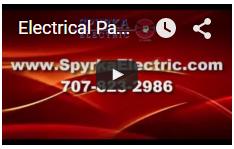 Thanks to excellent, emerging technologies and a widespread motivation to avoid gasoline, electric vehicles have quickly become more and more commonplace. As the auto manufacturers have increased production of electric cars, we have begun buying them at incredible rates. In fact, the demand for electric vehicles seems to be far outpacing the availability of charging stations that are actually out there. As a convenience and a wise investment, installing an electric vehicle charging station at home makes perfect sense.
Thanks to excellent, emerging technologies and a widespread motivation to avoid gasoline, electric vehicles have quickly become more and more commonplace. As the auto manufacturers have increased production of electric cars, we have begun buying them at incredible rates. In fact, the demand for electric vehicles seems to be far outpacing the availability of charging stations that are actually out there. As a convenience and a wise investment, installing an electric vehicle charging station at home makes perfect sense.
Ownership of electric vehicles has increased dramatically worldwide, but California has shown a particularly keen interest in alternative-fuel cars. Residents of Sonoma County and Marin County, for example, have been seeing electric vehicles used by local government vehicles for years and have begun driving them personally more and more. Overall, the demand for a home electric vehicle charging station has increased as the visibility of electric cars has increased.
Still, the handful of charging stations put up in places like Santa Rosa and Petaluma are not common enough like gas stations to be convenient for everyone to use. A home or neighborhood electric vehicle charging station offers easy access while representing a sound investment for the future of vehicle fuels.
Consider some of the key benefits of having an electric vehicle charging station at home:
- Charge up the car for hours as needed
- 240V or DC chargers take a fraction of the time compared to home 120V outlets
- Works for virtually any electric vehicle
- Avoids lengthy, unnecessary trips to charging stations
- Very handy when you have visitors with electric vehicles
- Some models can be unplugged and taken on trips
How Home Charging Stations Work
A professionally-installed electric vehicle charging station safely powers your vehicle’s battery while transmitting electricity at a high voltage. You can find ways to plug your vehicle in to a traditional power outlet at home, but doing it that way can be dangerous for your home electrical system and it also takes literally an entire day to charge that way.
With a 220 to 240-volt charging system (or even a 480-volt DC system) you can safely charge much, much faster—often in three to eight hours for a complete charge. You likely need a permit to install an electric vehicle charging station in residential locations in much of California. The exact codes vary by city, though, so you can look into the specific requirements of San Rafael or Novato, for instance.
Electric Vehicle Charging Station in the Bay Area
As more people own electric vehicles in Marin and Sonoma counties, we start to expect to find charging stations in more places. Although you can drive around and fine stations in the area, it remains most convenient to charge at home so you can maximize the range of miles your car can go before its next charge. California city and county guidelines make it easy to know what you have to do for a residential installation of an electric vehicle charging station. You can set up a home charging station or you can also work with a neighborhood or homeowners association and have a public or private charging station installed right where you live.
As time goes on, charging stations are becoming an expected feature of a house. In addition to the usefulness and convenience for yourself, having an electric vehicle charging station will make your property more attractive and valuable to buyers if you ever decide to sell the house.
Want an Electric (EV) Charging station installed in your home or neighborhood? Contact us today.

